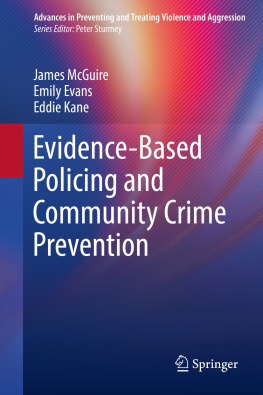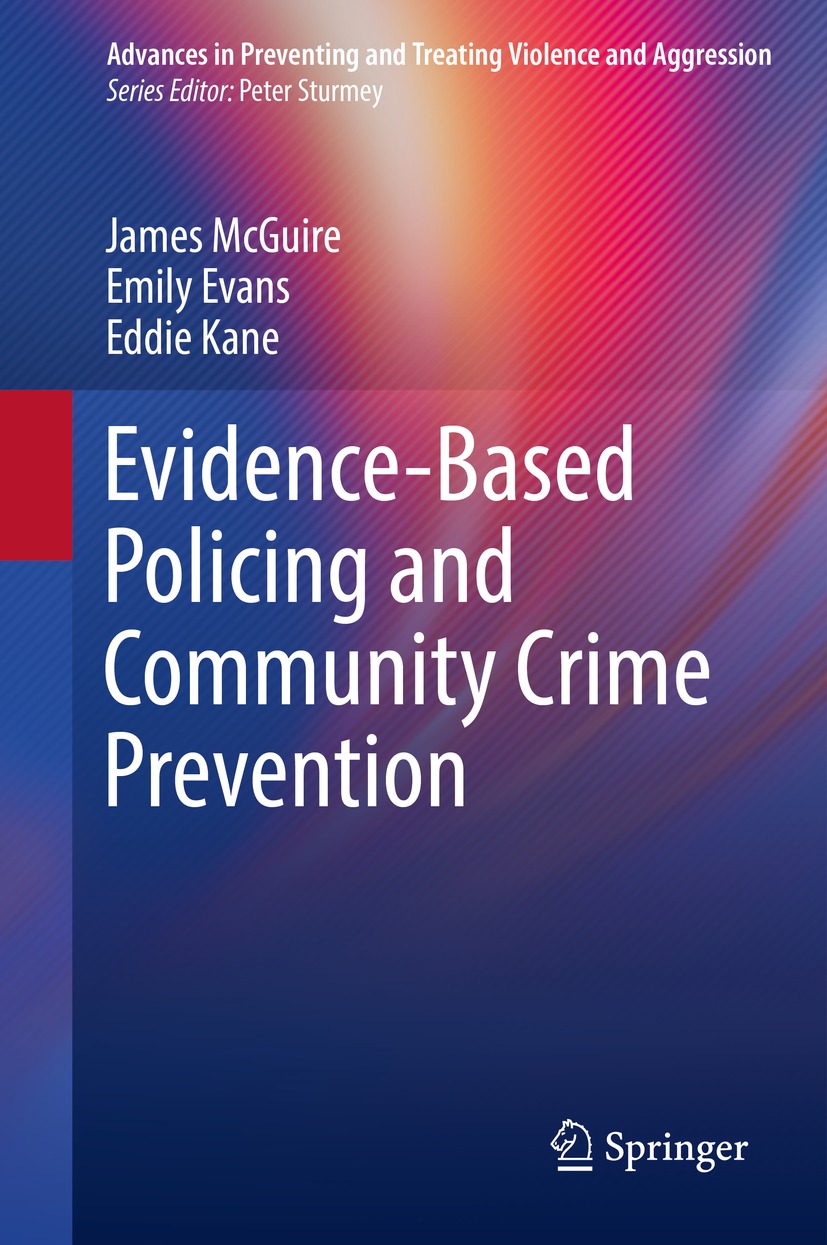James McGuire - Evidence-Based Policing and Community Crime Prevention
Here you can read online James McGuire - Evidence-Based Policing and Community Crime Prevention full text of the book (entire story) in english for free. Download pdf and epub, get meaning, cover and reviews about this ebook. year: 2021, publisher: Springer, genre: Romance novel. Description of the work, (preface) as well as reviews are available. Best literature library LitArk.com created for fans of good reading and offers a wide selection of genres:
Romance novel
Science fiction
Adventure
Detective
Science
History
Home and family
Prose
Art
Politics
Computer
Non-fiction
Religion
Business
Children
Humor
Choose a favorite category and find really read worthwhile books. Enjoy immersion in the world of imagination, feel the emotions of the characters or learn something new for yourself, make an fascinating discovery.
- Book:Evidence-Based Policing and Community Crime Prevention
- Author:
- Publisher:Springer
- Genre:
- Year:2021
- Rating:4 / 5
- Favourites:Add to favourites
- Your mark:
Evidence-Based Policing and Community Crime Prevention: summary, description and annotation
We offer to read an annotation, description, summary or preface (depends on what the author of the book "Evidence-Based Policing and Community Crime Prevention" wrote himself). If you haven't found the necessary information about the book — write in the comments, we will try to find it.
This book addresses and reviews progress in a major innovative development within police work known as evidence-based policing. It involves a significant extension and strengthening of links between research and practice and is directed to the task of increasing police effectiveness in the field of community crime prevention. This volume provides an international perspective that synthesizes recent research results from the United States and other countries including systematic reviews of large bodies of evidence to illuminate several of the most challenging issues currently confronting police departments. It examines recent advances in research-based models of policing and the expanding base in outcome evaluation.
Key areas of coverage include:
- Managing the nighttime economy.
- Supervising sex offenders.
- Tackling domestic/intimate partner violence.
- Addressing school violence and the formation of gangs.
- Reducing victim and witness retraction and disengagement.
- Responding to mental disorders, safeguarding vulnerable adults, and providing victim support.
- Leveraging public awareness campaigns.
In addition, each chapter presents an overview of key issues within a designated area, synthesizes existing reviews, and examines the most recent research. The book clearly and concisely presents major concepts, theories, and research findings, thereby providing both conceptual and analytic tools alongside an integrated presentation of principal findings and messages. The volume concludes with a discussion of current directions in research, key developments in policing strategies, and identification of effective operational structures for facilitating and sustaining research-practice links.
Evidence-Based Policing and Community Crime Prevention is a must-have resource for researchers, clinicians and other professionals, and graduate students in forensic psychology, criminology and criminal justice, public health, developmental psychology, psychotherapy and counseling, psychiatry, social work, educational policy and politics, health psychology, nursing, and behavioral therapy/rehabilitation.
James McGuire: author's other books
Who wrote Evidence-Based Policing and Community Crime Prevention? Find out the surname, the name of the author of the book and a list of all author's works by series.





